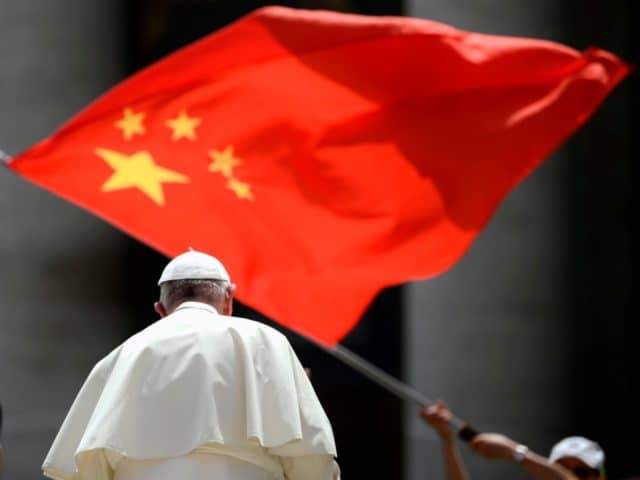Report: China Gives Vatican ‘Slap in the Face’ over Naming of Bishops

China has eliminated any role for the pope or the Vatican in the appointment and consecration of Catholic bishops in its newly published norms for religious clergy.
The Chinese Communist Party (CCP), which renewed its secret agreement on the naming of Catholic bishops in the country last October, has apparently reneged on its deal, according to the online journal Bitter Winter, which has published an English-language translation of the Administrative Measures for Religious Clergy, which will go into effect on May 1, 2021.
“In a slap of the face of the Vatican, Catholics are told by article 16 that bishops in China should be democratically elected through the Chinese Patriotic Catholic Association, i.e., appointed by the CCP, and consecrated through the Chinese Catholic Bishops Conference,” Bitter Winter notes.
“There is no mention of the Vatican or the Pope, which in theory should appoint the bishops under the Vatican-China deal of 2018, renewed in 2020,” the journal states.
In the summer of 2018, bishops of the CPCA directed Chinese Catholic dioceses to draft local versions of a national “Sinicization” program aimed at bringing the Catholic Church into line with the ideals and values of the ruling Communist Party.
In June 2019, Pope Francis gave Catholic priests and bishops in China permission to join the state-controlled Chinese Patriotic Catholic Association (CPCA), which was formerly off-limits to Catholic clergy given its independence from Rome.
The former bishop of Hong Kong, Cardinal Joseph Zen, criticized the move, insisting it “quite clearly encourages the faithful in China to join a schismatic church (independent of the pope and under the orders of the communist party).”
There is “much confusion and contradiction” in that document, Zen declared, since it allows Catholic priests to join a shadow church that is “independent” from Rome while Vatican officials insist that the word “independent” should no longer be understood to mean “absolutely independent.”
China’s Catholic Church has been split into underground and open communities since 1957, with the latter going by the title of the Chinese Patriotic Catholic Association. A Vatican document of 1988 barred Roman Catholics from participating in the sacraments of the CPCA, noting that the patriotic association had issued a declaration saying it “had broken all relationships with the pope” and would be “under the direct control of the government.”
In 1988, Pope Benedict XVI reached out to Catholics in China with an open letter in which he praised their faithfulness, encouraged their perseverance, and laid out new guidelines for the life of the Church in China.
Pope Francis has sought to allay the fears of Chinese Catholics and others who believe that the Vatican has yielded too much authority to the Communist Party in the internal affairs of the Church, writing a letter to Chinese Catholics in September 2018 saying that he understood their worries but urging them to trust him.
Francis said he is convinced that “encounter can be authentic and fruitful only if it occurs through the practice of dialogue, which involves coming to know one another, to respect one another and to ‘walk together’ for the sake of building a common future of sublime harmony.”
According to Bitter Winter, Beijing’s new religious regulations “create an Orwellian system of surveillance, and strengthen the already strict control on all clergy.”
“The tool is a national data base of the authorized clergy, meaning clergy trained and recognized by the five authorized religions,” the report states. “There is a complicated system to enter the data base, but those who are out of it and will claim to be clergy will commit a crime.”
Those excluded from the data base are pastors of Protestant house churches, Catholic conscientious objectors who refuse to join the Chinese Patriotic Catholic Association, teachers and clergy at independent mosques and Buddhist and Taoist temples, Jewish rabbis, and religious personnel of new religious movements, Bitter Winter observes.
Photo: FILIPPO MONTEFORTE/AFP/Getty
Link: https://www.breitbart.com/national-security/2021/02/16/report-china-gives-vatican-slap-in-the-face-over-naming-of-bishops/




